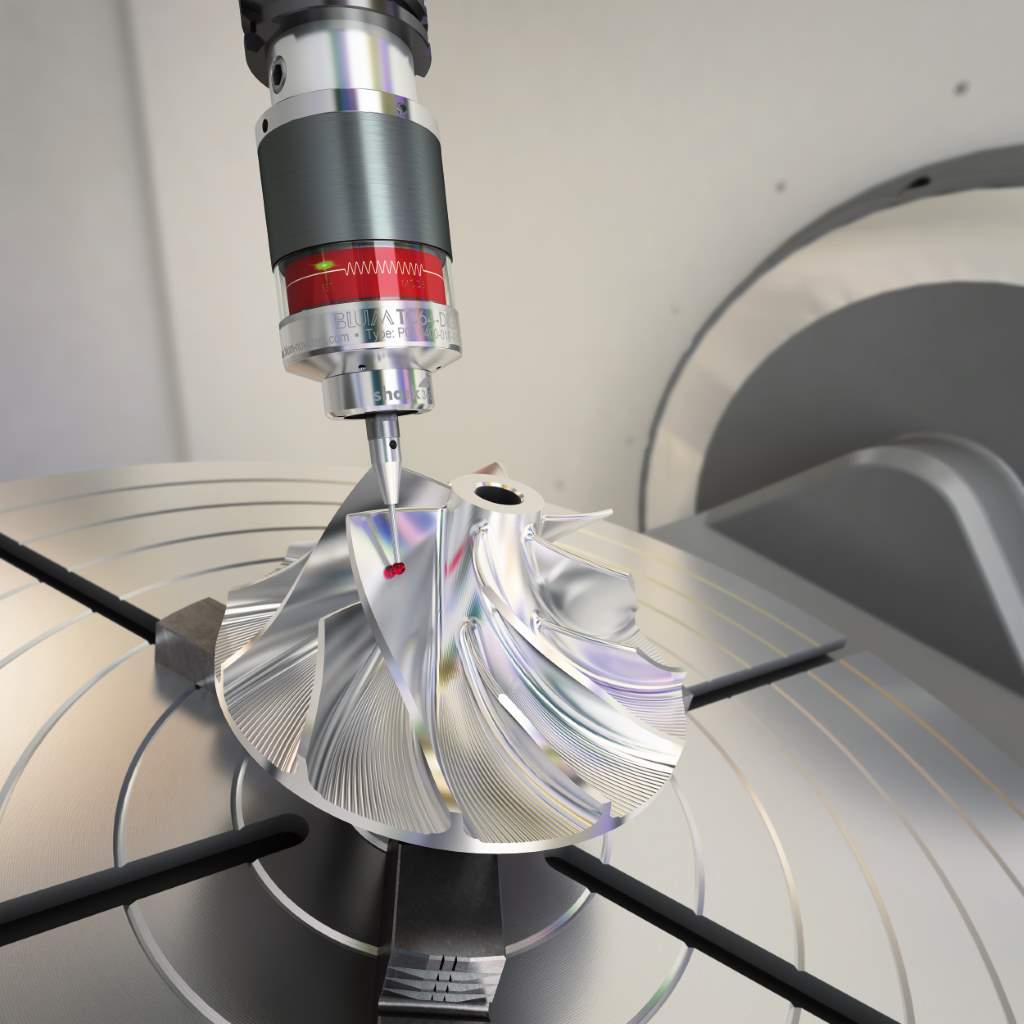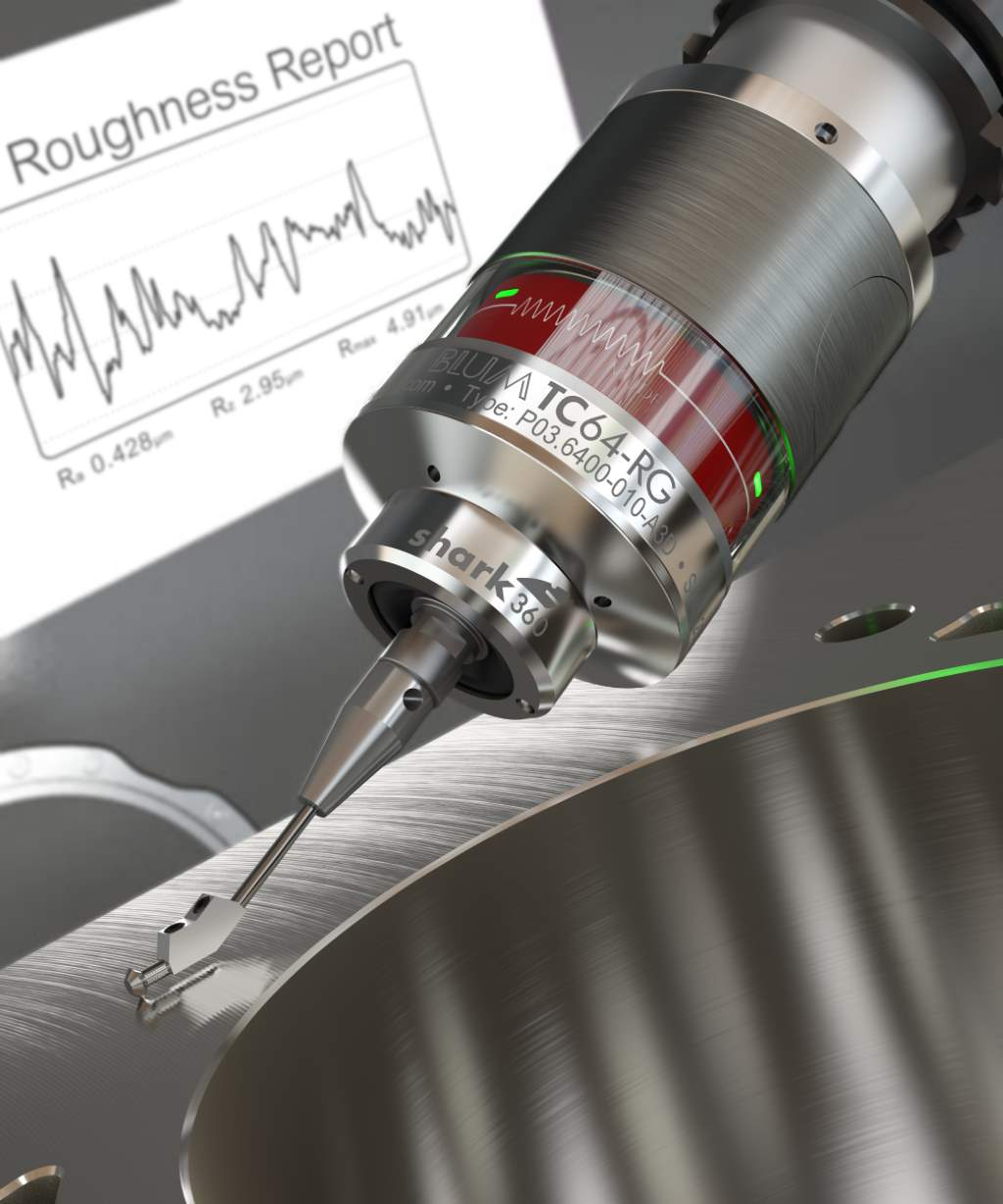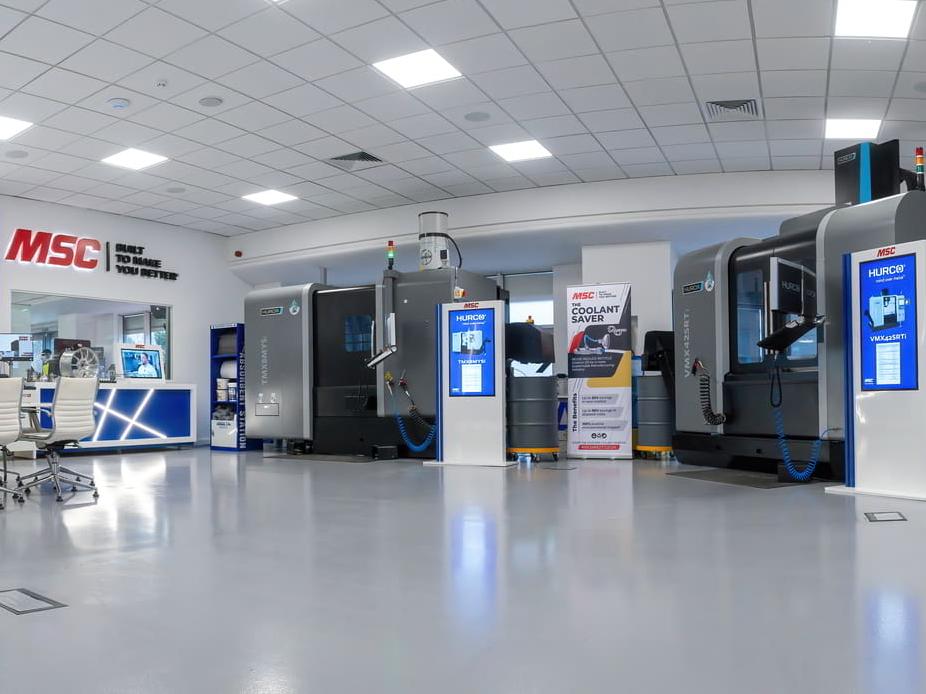Quality control – guaranteed

Today’s modern machine shops are very different places from those of the past. Accuracy and repeatability have always been key requirements for CNC machining but now there’s a growing focus on efficiency and productivity. Blum-Novotest is a global leader in measurement and testing technology and in this article, its UK managing director David Mold takes a closer look at how quality control can be integrally woven into the process.
The global economy is changing; the strategy of moving production to low-cost countries has shifted to a more local approach. One issue that needs to be addressed for this new strategy is controlling costs in a higher production cost market. Automation plays a key role here.
We must be able to get more parts from our machines with less human intervention and so every machining company should be looking at how they can increase productivity from their machine tool capacity.
There are several ways this can be achieved: automating the loading/unloading of parts to be machined; optimising the cutting processes and machine programs to reduce machining time; and reducing the idle time through the introduction of automation.
Modern machine tools are inherently reliable, so there’s less downtime and energy used to help reduce production costs, but if we are going to achieve higher productivity from our machines it is essential that we are machining good quality parts every time.
Change is a constant
Throughout the machining process, key factors in the machine are constantly changing. Cutting tools will wear as they machine parts or sometimes break. There will be dimensional differences between differing workpieces and the exact location of the part on the machine may change.
Temperature is also a variable. Today’s machine tools are much better at monitoring and compensating for temperature variation but still there are many aspects within the process that experience different temperatures. If we are to achieve higher productivity and efficient automation implementation, then it is essential that we control these variables – otherwise defective parts will result.
Blum has been providing probing solutions for machine tools for over 50 years but it is its development of a group of products called Digilog that is really helping machining companies to truly automate their machines and produce consistently good quality parts. The Digilog family of products from Blum are designed to measure and control these variables within the machine.

It’s all in the name
By utilising both digital and analogue signals – hence the name Digilog – the impact of cycle time to measure tools or parts in the machine is significantly reduced. Digilog technology gathers thousands of pieces of data taken within micro-seconds resulting in accuracies and cycles times simply not possible in the past. Blum’s complete solution incorporating advanced software and machine interface solutions means machine users can obtain data for tools, workpiece and temperature easily – with compensation – without needing to do anything.
Conventional probing is digital – that is, they are either deflected or not, triggered or not, hence digital. To measure parts and complex tool geometries, you would have to make many measuring moves to draw a picture of the workpiece or tool.
With Blum’s Digilog, the probes have both digital and analogue elements. The probes can not only determine whether they have been triggered or not, but also how much they are triggered which means we can now gather complex freeform workpiece shapes or complex tool geometries much more accurately and importantly, much quicker than was previously possible.
Accurate measurement, control and compensation of cutting tools now becomes reality with the LC50-Digilog tool control system. A non-contact laser system, the LC50-Digilog measures the cutting tools live in the machine at the spindle speed programmed for the cutting.
By measuring tools at full rotational speed, the actual tool geometry under clamped conditions in the spindle to be used are determined and automatically updated, resulting in highly accurate tool data.
Thanks to Blum’s Digilog technology, this is achieved in seconds meaning the days of taking up valuable cycle time for measurement are gone. Tools can be monitored throughout the machining program and updated so it is possible to run machines throughout the night or at weekends. If tools are identified as broken, alternative tooling can be employed if available or if not, the machine can be stopped.

Probe flexibility across the range
Control of parts within the machine is now possible with Blum’s TC series of Digilog probes which can scan freeform shapes of the workpiece – but to give the highest benefit for the user, they are used as comparative probes. Firstly, a scan of a good or golden part is learned by the system. Then, throughout the machining program, parts can be quickly scanned and compared to the golden part to ensure compliance. If the probes detect an error, the part can be rejected by either informing the operator via an alarm or by utilising the automation systems within the process.
Blum also has probes for checking surface finish called TC-RG probes. Identical probes to the TC-Digilog but with different software and styli, RG probes can scan any surface and measure the finish giving results in Ra, Rz, Rq, Rt and Rmax. Through measuring with the probes, tools can be controlled to determine when they need to be changed and again if sister tooling is employed, they can be automatically changed over.
Completing the Digilog range is the TG81 temperature measuring system from Blum. This can be used to measure temperature of the workpiece, fixturing or within the machine tool to compensate the cutting parameters to take temperature fluctuations into account.
Production cost savings can be achieved in many areas. Firstly, simply by measuring tools or parts within the process, machines can be truly automated – and with constant corrections from Blum systems, more parts can be machined correctly without human intervention. This has a direct impact on the bottom line of a business. Also, as tools are constantly being measured and changed less frequently, costs can be reduced.
Blum provides a full retrofit solution for the Digilog product series. Employing highly skilled and experienced engineers in the UK, all products can be fully interfaced into many types of CNC machining centres. Blum provides its own interface modules which facilitates handshaking between the probes and the machine’s CNC.
Blum’s software comes in the form of both NC code to run the probing application on the CNC and advanced Windows software that can be run on either the CNC or a separate PC for full evaluation and compensation of the measured results.
The future of probing within machine tools will be further developments within the Digilog family of products. More software applications and intelligent hardware will provide users with even more control of the machining process taking automation to the next level. Blum’s goal is to help our customers ensure every part machined is a good part.
Blum-Novotest
www.blum-novotest.com















